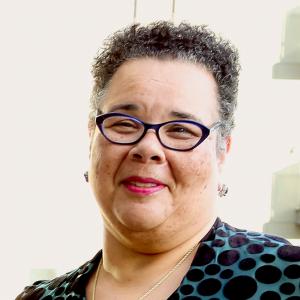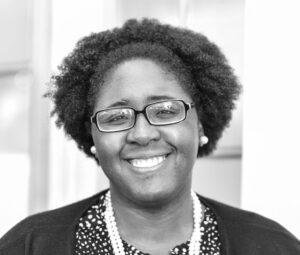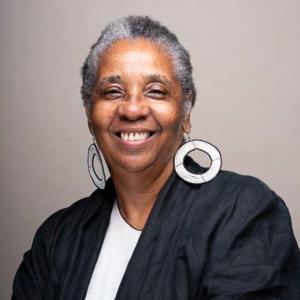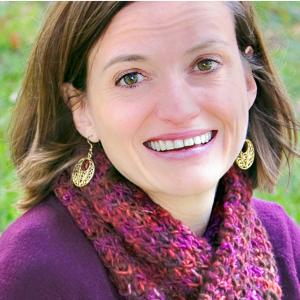Resources

Preface It is my pleasure to co-author this blog with Dr. Roger Nam, Professor of Hebrew Bible, Candler School of Theology, Emory University. Dr. Nam and I have been a part of the Wabash Center project for over twenty years. We have had the opportunity to hear, as participants and as participant leaders, the kinds of questions and concerns early career colleagues pose over meals, while canoeing or during the late-night hours in Clifford Lounge. Invariably, issues of thriving, surviving, and knowing “what to do” as an early career person navigating the academy are at the forefront of the concerns and conversations. We understand that questions about the teaching life are just as important as questions about the craft, praxis, and art of teaching. Generative teaching requires a life that is healthy, whole, and resilient – especially in the early stages of any colleague’s career. Roger and I have recorded a series of podcast conversations which engages the questions we heard regularly posed by early career colleagues. These conversations are not meant to give advice to particular situations or specific people, nor are they intended to provide guidance for opportunities. The conversations are intended to suggest the kinds of issues, questions, and curiosities needed to frame moments of discernment, decision making, mentoring, and dreaming. Further, Roger and I are not claiming expertise in any particular situation. Our expertise is in the many conversations we have had with colleagues and the many years we have had as leaders in our own fields of endeavor. Flourishing in the Teaching Life Series Personal Finance and Planning: Roger Nam Healthy and career stability includes planning for the financial future and managing personal funds. Understanding 403B retirement accounts investments, and estate planning is part of faculty wellness. Understanding Institutional Finances: Roger Nam Learning to read institutional budgets, understand endowments, and be knowledgeable about financial reports will assist faculty persons. Being informed about your school’s financial picture is an aspect of personal wellness. Negotiating Job Offers: Roger Nam What is possible as you accept a new job? What kind of agency is needed to feel like you belong at hire? What does it mean to know your worth and value? Charting the Course of a Scholarly Career: Roger Nam Scholarly careers are not linear or tidy. Hear about helpful tools for career management like: creating a map/plan for tenure process and promotion (6 year plan), having more than one mentor, knowing when to leave the first job and when to stay, finding conversation partners for career decisions. Entrepreneurial Ambitions and Insights: Roger Nam What scholarly skills are transferrable to other enterprises? What does it mean to consider an executive position like a deanship or presidency? How do I manage speaking engagements, book deals, and other kinds of opportunities? What is an LLC and do I need one? Negotiating Once you are given a job offer, then it is time to negotiate your needs for hire. Negotiating your contract presumes you have agency concerning your career decision-making and that you have, in depth, researched the institution from which you have received an offer. Negotiating requires that you are not ambivalent about the job. You must have clarity about your needs, the needs of your family and the kinds of provisions you would need to thrive in that specific environment given the geographic location, kind of institution, and your hoped-for career trajectory. Negotiation is context specific – there is no “one size fits” every situation. Be mindful, that while we have heard of each of these items listed below having been negotiated, we have never heard of all these items in any one contract. When negotiating for a job offer, you must consider the context of the school, know your own value to the institution, and consider what you will need to thrive in that location. Your requests should not be capricious and, as in any negotiation, compromise must be part of the engagement. Salary is too often the only consideration of negotiation. Most schools have a determined entry-level salary for early career colleagues and/or the institution has established bans of salaries for the entire institution, which cannot be ignored nor changed. Many starting salaries are not negotiable. That said, even a 1% increase can accrue into a significant amount of money over 10, 20, 30 years of employment. Beyond salary negotiation, it is likely that your ability to thrive depends more on the kinds of items in the list below. Consider negotiating toward these kinds of needed aspects of the job: Title and Status Housing Short term or long term / rent reduction/ mortgage support Equipment (computers, and other technologies) Teaching resources Office location and office furnishings Funds and Funding (access to funds is typically not taxable as they are not part of salary) Moving Funds (Since 2018 moving expenses are not tax deductible except for military members). Often funding amounts are pre-set and moving funds are always considered salary and thus taxable. Consider that if you do not need to move to take the job, ask that these funds be considered a hiring bonus or accessed for some other purpose. Research Funds Travel Funds Student Loan relief Startup costs to help establish a research trajectory (e.g., library funds, index services) Eligibility for tuition remission for children Access to institutional credit card so you do not need to “front” expenses Membership to or use of school’s membership in local institutions (e.g. country club) Classroom resources Scheduling and Timing Course release Course timing and flexibility in mode of teaching Tenure Clock and Sabbatical Clock Committee Relief or Committee Assignment Delay or reduce administrative obligation (e.g., will not chair department until after tenure) Junior faculty sabbatical (leave in preparation for tenure or promotion, year 3, 4, or 5) Staff Support Research Assistant Teaching Assistant Publishing Assistance for: content editing, copying editing, indexing, footnote verification, etc. Access to administrative assistant services Hire of coach for administrative role and responsibilities Grant writing assistant Creation of a center or other institutional project of your own scholarly interest Bottom Line Negotiation depends upon your own agency. Your agency, exercised for your own wellbeing, begins when you submit your job application and continues throughout your career. Too many colleagues accept a job offer without negotiating or without having read the Faculty Handbook, the benefits package, or knowing enough about the culture of the faculty. Learning about the job begins with your preliminary research on the institution before making application, continues with posing your questions at the interviews, includes conversations with knowledgeable mentors and colleagues at other schools. By the time you are offered the position, you should have a clear sense of what is possible for the position you are considering and what you would need from that institution to thrive, flourish, and be well in your work.
Dr. Tina Pippin is the Wallace M. Alston Professor of Bible and Religion at Agnes Scott College. In this Silhouette Interview, Dr. Pippin talks about how she always wanted to be a teacher and was particularly inspired by teachers who pushed boundaries. She discusses being driven to connect the Word with the world, and in her fight for just wages, her superpower is the ability to show up and stand fast in the places where power doesn't want you.
Rev. Dr. Stephen G. Ray is the Crump Visiting Professor and Black Religious Scholars Group Scholar-in-Residence at the Seminary of the Southwest. Dr. Ray discusses longing, as a child, to do anything in the future that allowed him to read books, being an only child with the encyclopedia for a friend, and rebounding from an initial undergrad attempt where he had a .75 GPA. Ray also touches on miseducation and the loss of historical knowledge in students, his ability to educate, challenge, and inspire with media and narrative, and the importance of being about your projects--not your institutional job.

PAYING ATTENTION I try to work it in casually, inconspicuously, but of course it is glaring. Students notice it immediately – the emphasis on a student’s progress instead of grades, the focus on their and my mental wellness as the primary means to be sharpest in learning, the inverting of power dynamics and the undoing of traumatizing power relationships in how the classroom is run. My body notices it, too. Decolonizing the classroom is difficult work and wildly unfamiliar territory. It runs directly in the face of what we instructors and professors know the classroom to be. And it runs directly to our worst fears and insecurities and does an elaborate dance around it – but not in a taunting way. It dances freely in a spirit of welcome and joining. A decolonized classroom, this liberating means of being communal learners together, requires constant movement. And truth-telling, where everyone names their fears. Students locate themselves in the learned cycle of education where their performance is assumed to dictate their worth. And instructors and professors work hard to resist the shameful impulse to agree. For this uneven correlation is all we know: performance is worth. Worth is performance. But is worth the performance? Decolonizing work requires an intense amount of internal resistance, of re-narrating what we have been trained to recognize as true, as opposed to what we may instinctually know to be true. Education can be ruthless at worst, engrossed in its unmoving standards at best. Instructors and professors know this all too well: “How else, besides grading, are we supposed to measure progress?” “How else will students take us seriously?” “How do we ensure students prioritize their coursework?” “How do we make sure our assignments do not take a back seat to another’s class or to a student’s ministry or to the ups and downs of their life?” This is the academic-body’s response to fear: rhetorical questions willing to gently carry our insecurity, for we honestly do not know the answer to these questions. And we may never know until we experiment with inverting power in our course structures. And failure. We need to try failure – again and again. And once we are accustomed to failing, to feeling like we are losing our grip on the notion of rigor we were trained to recognize – by sight, or by the all-too-familiar tightness in our chest - we can ask what lesson(s) failure has been trying to teach us all along. We instructors and teachers must become disciples of our failures, insecurities, and fears. Because it almost feels unbearable to not be liked or to feel misunderstood or to sense disrespect. But a decolonial classroom asks the instructor/professor what the lessons are: What messages of community and communal learning are thrust to the fore when the body struggles with varying messages of acceptance? In actively shifting the purview, the how and who, of learning, what might be able to be seen and understood differently? In a world inundated by systems of dominion and domination, mastery and expertise, often ignorant of the fullness or complexity of a person, what might a holistic form of respect look like? It has to be felt in the body. There is no way around it. We will only get pieces, as a common complaint is that we cannot be everything to every student. This much is true; but even in recognizing this expansive truth, expanding our sense of resisting strictures is still a lesson well-learned. HOW TO GAIN TRUST IN THE CLASSROOM Dear instructor/professor, How do you feel? It is only from here, the space of feeling, that decolonial possibility in the classroom can be born. It is not method. It is not strategy or project. It is a return to humanity, it is still-unfolding fullness. The process of learning happens to occur in the midst of a collective space where humans are learning how to be appropriately human together. Your decades of study does matter; but what matters most is your decades of living. Does your living have room in your classroom? This is decoloniality; it is a (means of) living into. To be decolonial means treating people like humans - not objects, or projects, or cogs in a machine - but like their life is beautiful and important and lovely. When instructors/professors begin to get a hold of this – first by addressing our fears, and next by allowing space for our pedagogical dreams to blossom and run a bit freer, then and only then can we broach the conversation and winning students’ trust.
What scholarly skills are transferrable to other enterprises? What does it mean to consider an executive position like a deanship or presidency? How do I manage speaking engagements, book deals, and other kinds of opportunities? When should a LLC be established?

Part Two: Ritual Extends the Depth of Our Imagination. Ritual takes the familiar and enlivens it with our imagination. Consider it this way, you have a favorite dance or song or prayer. The reason we can dance it, sing it, pray it, again and again is that each time our ingenuity takes the work to another dimension. Each time we feel, express, and see something new that we did not experience before. It is this aspect of ritual that makes it meaningful and alive and different from a routine. Each time we engage in ritual it comes alive with the genius of our imagination. Ritual can even begin in our imagination and blossom through its application. We imagine a portal, a doorway in liminal spaces and to our delight, the ritual affords the opportunity to be in liminality and create. So, during the ritual there may be revelation, illumination and even inspiration that touches our spirit so that it becomes real. The ritual has moved from a familiar intent, or action, to the manifestation of our imagining. With practice, we become fluid in ritual making and always expect our imagination to do what it does. In this way, ritual maintains the integrity of being in the present while reaching into the unseen (imagination). Because we are intentional in ritual, it also creates a kind of authority to dreaming and imagining. Ritual helps to declare that what we dream, what we imagine, is as much a part of our collective covenant in Spirit as the faith we have in our Creator and Ancestors working on our behalf. So, do ritual; do ritual to imagine deeply!
The Rev. Dr. Gay L. Byron is Professor of New Testament and Early Christianity at the Howard University School of Divinity in Washington, DC.

“So, if anyone tells you to go to hell,” I say to my students, “you can say, ‘that’s fine—because Jesus has already been there, so I won’t be alone.’” When I started teaching theology at Columbia Seminary nearly twenty years ago, nobody told me that I needed to talk about hell. And for many years I barely mentioned it. In my own formation, from Sunday school through doctoral studies, the threat of hell had been either a quaint theological fragment of an earlier era, or a harmful piece of proclamation from Other Christians. It was not a pressing concern of the contemporary theologians I engaged, and it was not even a major topic for classical theologians like John Calvin. Like James Cone, I was more concerned about living conditions that might be called “hell on earth” than about any future state of punishment. The one place I did address hell was in connection with Jesus’ “descent into hell” (as affirmed in the Apostles’ Creed). Students wondered what in the world this might mean. It regularly prompted discussions between students who were familiar with this line and those whose churches had deleted it. “Do you ‘descend into hell’?” I began to ask my classes early on when we came to the topic. Students tended to have strong opinions. Ruminations on the presence or absence of hell in the creed led me to discover startling good news in this affirmation, in two ways: To say that the human Jesus of Nazareth experienced not only physical death, but the fullness of spiritual alienation from God—and to affirm that this same human is also one with God—is to affirm that God in Jesus somehow enters the depth of human suffering. There is nothing in human experience, not even hell, that is bereft of the presence of God. It’s Romans 8:38-39 all over again. The descent into hell is not the final word. As the ancient image of the “harrowing of hell” and the common Orthodox anastasis icon portrays it, Jesus descends into hell and then draws up those who are dead into new life. Those in Hades are now joined with Christ in resurrection. I would not have reached this recognition of the good news of Jesus’ descent into hell without following the questions of students. But for many years, this is all I said about hell in Theology 1 and 2. That changed recently, as students began to ask new questions. A couple of years ago, toward the end of the second semester of theology, my co-teacher Tim Hartman and I were talking about Christian faith in a world of religious diversity, and several students were troubled. “We have been taught our whole lives that if you do not accept Jesus Christ and confess him as savior, you are going to hell,” they noted. “Why have we not talked about hell all year?” Tim and I paused. When our classroom had been majority white, I had avoided this topic because I did not think it was important—and no one had questioned that choice. Now that our classroom includes a majority of students from communities that have been minoritized because of race or sexuality (or both), the question resounds differently. We decided to make a change. This year, we added some readings about hell in connection with our discussion of salvation. Engaging this conversation directly enabled students to interrogate what they meant by this term, and how it was related to the gospel. Is “salvation” solely an individual matter, as popular visions of hell seem to suggest? Or is it communal, concerned for the well-being of all people and the whole world? Are heaven and hell actual locations, and if so, what does that mean? What does “hell” suggest about the relation of bodies and souls—are we talking about “souls” going somewhere after death? Focusing on hell also enabled us to wrestle afresh with Calvin’s doctrine of double predestination, in which eternal damnation is not the main point, but is a logical consequence of God’s eternal decree. Not many people (including me) wanted to defend Calvin on this point, but how does hell acknowledge the reality of God’s righteousness, and the significance of human responsibility? And finally, how has teaching about hell functioned in our churches, particularly in ways that harm people who do not conform to social norms? When we followed our students’ questions and made room for conversation about hell, it defused the concerns about its absence. Hell, actually became a fruitful part of a larger whole. So, here’s the takeaway: Following the surprising questions of students, even into hell, led to my own deeper discovery of the good news of a topic that I had previously avoided. How might attention to other student questions similarly open new vistas of discovery in the theology classroom?